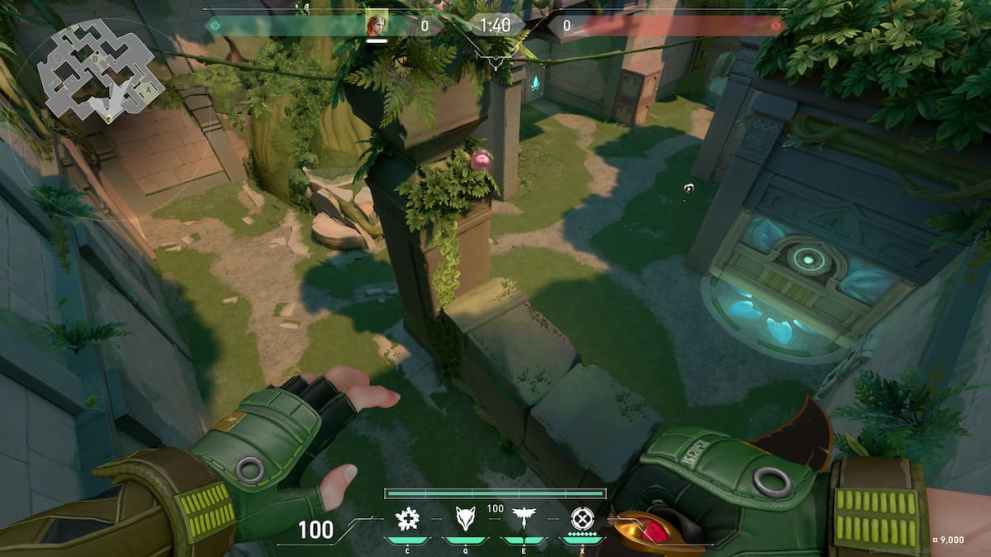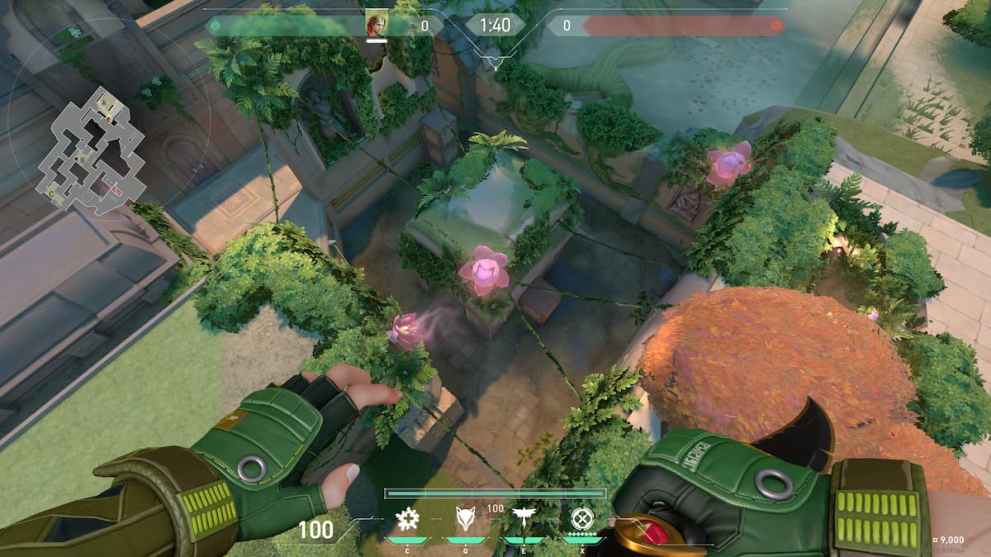Valorant has a new map coming to the rotation this month. It’s called Lotus, and if you’ve been paying attention to Twinfinite’s coverage of its anticipated reveal then you’ll probably already have a fairly good idea of what it looks like. You might even have seen some of your favorite content creators playing the map in Early Access over the past few days, too, something that Twinfinite had the opportunity to join in on as well.
Before I dive into my impressions of the map, though, I’m going to briefly trumpet my own credentials since I know how important it is for many Valorant players that the content they read/watch is made by somebody who actually knows the game as well as them. Rest assured, I do! I’m a high Immortal Valorant player with scrim and tournament experience against some of Europe’s Tier 2/3 teams, and I spent most of this past weekend checking out Lotus with professional players, coaches, and analysts. You can check me out playing Lotus below.
So, what are my big Lotus takeaways, then? Well, it’s a map that can throw out a lot of variables. As you will probably have seen in our overview article, it has three sites, a strange revolving door mechanic, a breakable wall, and sodden ground that gives away footsteps. Not to mention, all of the sites feature slightly different elevations and multiple points of entry — though the overall layout is actually less of a maze than appears at first.
There’s a complexity to Lotus that should encourage a high level of strategy at the macro level. And yet, complexity and multiple variables aside, most rounds of Lotus play in a fairly similar fashion. That is because there’s one overriding feature of the map that dominates how each round tends to unfold: the barrier locations.
Due to the fact that defenders are given lots of space and attackers very little, there is immediate fighting from the off. Riot Games’ Lotus development team clearly wanted to encourage big utility dumps at the start of each round from both teams in order to obtain map control. It’s guaranteed action as soon as the barriers go down, every time. That means exciting rounds for players, and a thrilling spectacle for observers — Valorant is an esports-first title, of course.

In particular, A Rubble (seen above) is an area of the map that sees huge fights almost instantly. It’s absolutely the most important area of the map to control. The contact here is very quick, with defending teams able to more or less take the entire area right away; of course, to do so requires utility and/or lots of players committed to the fight, leaving space elsewhere on the map.
Lotus and Haven share obvious DNA given they’re both the only maps in the game with three Spike sites, but it’s actually the similarity in the way the early round plays out that sticks out to me. On Haven, teams typically always fight for control of A Lobby. That’s the same story on Lotus with A Rubble, but Lotus also has the C Mound area, which also sees quite a lot of fighting and therefore makes early-round engagements even more explosive across the map as a whole when compared to Haven.
Importantly, there are big consequences for ceding space on either side when playing Lotus. Defenders quickly lose map control and orbs, and are forced to give up sites and endure long rotates. Attackers who don’t control space, meanwhile, are at risk of being flanked very quickly as their location is made obvious.

Denying flanks will be crucial for attacks since post-plants are a big deal on Lotus. Both A and C sites can be taken by attacking teams, and then defended in a post-plant from afar — either with lineups and other post-plant utility or simply by shooting defusers from distance. Defending teams that flank will take away that opportunity from attackers, who will then be forced onto small sites that can be tricky to hold onto.
But don’t let that make you think Lotus isn’t an attack-sided map because it certainly is — or at least, it feels that way right now. Defenders will always be spread thin across any map with three sites, and attackers will always benefit from being able to pivot quickly to B from either A or C. I suspect the best way to defend on Lotus might be to play aggressively and try to deny as much space as possible to attackers.
Again, it’s all-action stuff. There’s not likely to be the same slow, methodical defaulting we get on Haven, Ascent, and Split, where defenders can’t really see attackers until they’re at chokepoints. The map gimmicks on Lotus also cater to an aggressive playstyle, with the revolving doors not only making lots of noise but telegraphing their opening to all players on the minimap. Not to mention that the doors, like many of the walls on Lotus as well, are also spammable, so expect players to find reveal lineups from Agents like Fade to take advantage of that.
Speaking of Agents, there are a few that stand out immediately as those destined to become Lotus meta. Breach’s utility finds immense value on both attack and defense; Neon’s speed and stuns give her the edge in winning early duels for map control; Astra’s Gravity Well and global utility coverage is excellent on such a large, 3-site map, and Killjoy’s ultimate is completely OP for taking sites.
I can’t wait to play Lotus in scrims to practice all the utility combinations, and I think the map is going to prove a big hit in esports competitions. For ranked, though, I’m not so sure. Initially, the ebb and flow of the map should be simple enough, but it will be interesting to see whether Lotus ends up demanding a synergy to attack and defend properly that is beyond what is typically found in ranked games. I can see defending proving an absolute nightmare against aggressive and confident players, and equally attacking could feel futile against coordinated defenders who understand how to deny space.
As is always the case with a new map in Valorant, there’s going to be a break-in period for Lotus as players acclimate to the new map. For Pearl, it took a long time for players to learn (we’re still not there yet in EU Immortal!), and only now, six months after its launch, does it feel as though the consensus amongst players is trending positive after starting fairly low. I suspect Lotus might be the opposite — it’s such a fast and exciting map that I think players will enjoy it right off the bat, but long-term I’m not so sure. Time will tell, but for now, I feel confident in saying that it’s going to deliver some short-term thrills.
Lotus is due to release today/tomorrow with the launch of Patch 6.0. You can read the full update notes here.
